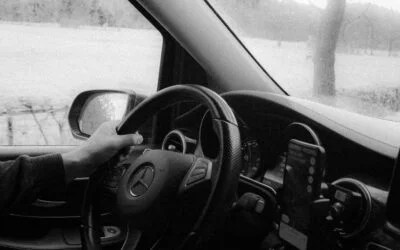Hotels are expected to provide safe accommodations for their guests, but accidents can and do happen due to negligence. From slip-and-fall accidents to inadequate security, unsafe hotel conditions can lead to serious injuries. If you’ve been injured at a hotel in Georgia, you may be entitled to compensation under premises liability law.
Common Unsafe Hotel Conditions
Unsafe conditions in hotels often result from poor maintenance, negligent staff, or failure to adhere to safety standards. Some of the most common hazards include:
1. Slippery or Uneven Surfaces
• Wet floors in lobbies or bathrooms, uneven carpeting, and poorly maintained staircases are leading causes of slip-and-fall accidents.
2. Faulty Furniture or Fixtures
• Broken chairs, unstable beds, or loose fixtures can cause injuries, including falls and cuts.
3. Poor Lighting
• Dim or malfunctioning lighting in hallways, parking lots, or staircases increases the risk of accidents.
4. Inadequate Security
• Hotels must ensure the safety of guests by providing adequate security measures, such as functional locks, surveillance cameras, and security personnel. Failure to do so can lead to assaults or theft.
5. Fire Hazards
• Defective smoke detectors, blocked fire exits, or failure to comply with fire safety regulations can result in severe injuries during emergencies.
6. Swimming Pool Accidents
• Hotels with swimming pools must adhere to strict safety guidelines, including proper signage, fencing, and maintenance of pool equipment.
What to Do If You’re Injured at a Hotel
If you sustain an injury due to unsafe hotel conditions, taking the following steps can strengthen your case:
1. Report the Incident
• Notify hotel management immediately and request an incident report. Ensure the report includes details about the accident and unsafe condition.
2. Document the Scene
• Take photos or videos of the hazardous condition that caused your injury. This could include wet floors, broken furniture, or poorly lit areas.
3. Gather Witness Information
• Collect contact information from anyone who witnessed the accident or was aware of the unsafe condition.
4. Seek Medical Attention
• Visit a healthcare provider to evaluate your injuries. Medical records will serve as critical evidence in your claim.
5. Preserve Evidence
• Keep copies of receipts for your hotel stay and any related expenses, such as medical bills or travel costs.
6. Consult an Attorney
• A personal injury lawyer can guide you through the legal process and ensure your rights are protected.
Proving Negligence in Hotel Injury Cases
To hold the hotel liable for your injuries, you must prove negligence. This involves demonstrating:
1. Duty of Care
• Hotels have a legal duty to maintain a safe environment for their guests.
2. Breach of Duty
• The hotel failed to address or rectify the unsafe condition, such as ignoring a broken handrail or failing to clean up a spill.
3. Causation
• The hotel’s negligence directly caused your injury.
4. Damages
• You suffered actual harm, such as physical injuries, medical expenses, or lost income.
Types of Compensation Available
If your claim is successful, you may be entitled to various forms of compensation, including:
1. Medical Expenses
• Coverage for hospital bills, surgeries, physical therapy, and future medical care.
2. Lost Wages
• Reimbursement for time missed from work due to your injury.
3. Pain and Suffering
• Compensation for physical pain, emotional distress, and reduced quality of life.
4. Property Damage
• Recovery for any personal belongings damaged during the accident.
5. Punitive Damages
• In cases of gross negligence, the court may award punitive damages to deter similar conduct in the future.
Challenges in Hotel Injury Claims
While premises liability laws are designed to protect victims, hotel injury claims can be complex. Common challenges include:
1. Disputes Over Fault
• The hotel may argue that you contributed to your injury, such as failing to exercise caution or ignoring warning signs.
2. Lack of Evidence
• Proving negligence requires strong evidence, including photos, witness statements, and incident reports.
3. Corporate Defense Tactics
• Large hotel chains often have legal teams that aggressively defend against claims, making it essential to have experienced representation.
4. Jurisdictional Issues
• If you were injured at a hotel while traveling, jurisdictional differences in laws may complicate your case.
Georgia’s Premises Liability Laws
Under Georgia law, hotels are considered “invitees,” meaning they owe their guests the highest duty of care. This includes:
• Regular inspections to identify and address hazards.
• Prompt responses to guest complaints about unsafe conditions.
• Compliance with all safety regulations.
The statute of limitations for filing a personal injury claim in Georgia is generally two years from the date of the incident. Failing to meet this deadline can bar you from recovering compensation.
How Gunn Law Group Can Help
At Gunn Law Group, we understand the challenges of holding hotels accountable for injuries caused by negligence. Here’s how we can support your case:
1. Comprehensive Investigation
• We gather evidence, interview witnesses, and consult experts to build a strong case.
2. Negotiating with Insurance Companies
• Our team negotiates aggressively with hotel insurers to secure fair compensation for your injuries.
3. Pursuing Litigation if Necessary
• If a fair settlement cannot be reached, we are prepared to take your case to court and fight for justice.
4. Personalized Representation
• We tailor our approach to meet the unique needs of your case, ensuring you receive the support and advocacy you deserve.
Conclusion
Unsafe hotel conditions can lead to serious injuries, but victims have legal options to seek justice and compensation. By understanding your rights and working with an experienced personal injury attorney, you can hold negligent hotels accountable for their actions.
If you or a loved one has been injured due to unsafe hotel conditions, contact Gunn Law Group at 888-244-4866 for a free consultation. Let “the Big Gunn” fight for your rights and help you recover the compensation you deserve.




